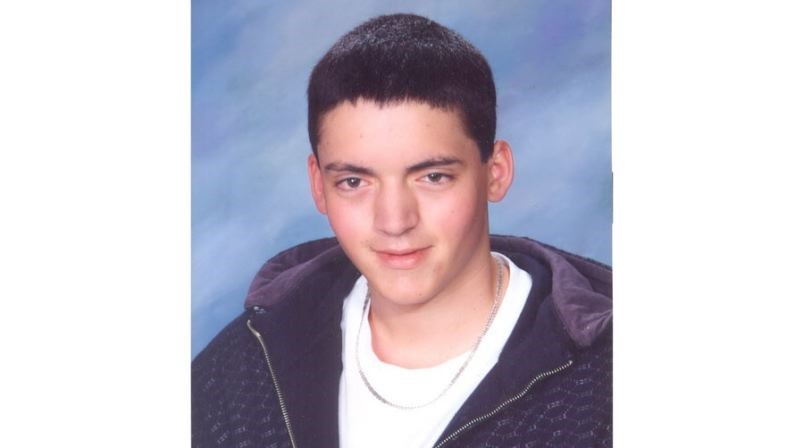Despite the testimony of a witness who saw three armed men chase Jordan Taylor McLeod into the woods and then drag his dead body back to their pickup truck, defence lawyers for these men argued Wednesday for all to be acquitted on the charges of first degree murder.
The closing arguments of the defence lawyers for two of the three men accused in McLeod's January 2015 murder argued that the crown had not established, beyond a reasonable doubt, who had killed him. The prosecution, they said, relied overwhelmingly on statements from an unreliable witness.
"It is the defence's position, as a matter of law, that if the court is unable to determine what, if anything, each accused did to act as participant, aider, abetter or principal, all must be acquitted," John Gustafson, the defence lawyer for one of the accused, told the court on Monday afternoon.
The three accused, Darren and Kurtis Sundman and Sebastien Martin, were all involved in drug trafficking in Vanderhoof at the time of the murder. McLeod, also acknowledged by prosecution and defence to be a known drug trafficker, had been supplying Darren and Kurtis with methamphetamine and cocaine prior to his death.
Both Gustafson, who represented Darren, and Brad Smith, who represented Kurtis, referred to previous legal precedence indicating that if the precise guilt of each party cannot be established beyond a reasonable doubt, all parties must be acquitted. Neither men disputed that McLeod was murdered.
Earlier in the trial, the court heard from Stacey Stevenson, a key witness who had been romantically involved with both Darren and McLeod. Stevenson testified last month that on the night of McLeod's death she had been in a pick-up truck with the three accused and McLeod during a drive from Vanderhoof to Prince George. Darren had begun hitting McLeod on the head with the butt of a Glock handgun. At one point Darren had told McLeod he had to jump out of the moving vehicle "or he knew what was going to happen to him." Kurtis, who had been driving the vehicle, then slowed the vehicle and McLeod jumped out. He was pursued into the woods by the three men. Darren and Martin were both armed. Several shots were fired and Stevenson testified she heard Martin say "I got him boss." McLeod's body was then dragged by the three men back to the pick-up.
All three of the accused, as well as Stevenson, had been using methamphetamine.
Both Smith and Gustafson argued that the testimony of Stevenson was unreliable due to her heavy used of methamphetamine at the time. She had signed an immunity agreement with police in exchange for her testimony at the trial.
"There's no evidence that she's motivated by anything other than her own self-interest," Gustafson said.
Smith, in his closing arguments on Wednesday, argued that there was insufficient evidence to prove that a drug debt had been a significant motive for the Sundman brothers to kill McLeod.
"In a drug business relationship, it's not unusual for there to be drug debts in existence at any given time," Smith said.
Similarly, he downplayed the notion that there was a disagreement with McLeod over drug turf in Vanderhoof.
"Neither Darren nor Kurtis controlled the drug business in Vanderhoof and other drug dealers such as Ian Kelly and maybe Matthew Chow Voh operated in Vanderhoof independently from Darren and Kurtis," he said.
Although Smith argued there was insufficient evidence of who pulled the trigger, he told the court that, if guilt was to be assigned, there was little reason for Kurtis to be found guilty of first degree murder. He recommended that, if guilt were assigned by the court, Kurtis be found guilty of manslaughter.
The day ended with a rebuke by Justice James Williams of James Heller, the defence lawyer for Martin. Williams seemed annoyed that Heller had not provided him with a written submission of his closing arguments.
"Do you have any idea of how unhelpful that is, that you don't have anything?" Williams said to Heller.
"We're at the end of a sixty day trial. It's deadly serious. No more serious charges under the criminal code. I've got to try to make some sense of all this," he said.
Williams opted to stand down the trial in order to allow the written submissions to be completed.
The trial will continue Thursday.



